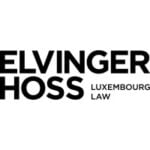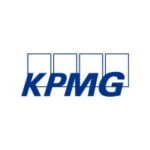-
Climate – the law governing operations that emit Greenhouse Gases (e.g. carbon trading) is addressed by Environment and Climate Change international guides, in respect of ESG: a. Is there any statutory duty to implement net zero business strategies; b. Is the use of carbon offsets to meet net zero or carbon neutral commitments regulated; c. Have there been any test cases brought against companies for undeliverable net zero strategies; d. Have there been any test cases brought against companies for their proportionate contribution to global levels of greenhouse gases (GHGs)?
a. Is there any statutory duty to implement net zero business strategies;
No, not under specific Belgian legislation. However, the Corporate Sustainability Due Diligence Directive (“CSDDD”) requires in-scope companies to adopt and put into effect a transition plan for climate change mitigation to 1,5 C° in line with the Paris Agreement. The CSDDD must be transposed by Member States by 26 July 2027. On 26 February 2025, the European Commission published its first Omnibus package, with proposals to simplify the CSDDD, the Corporate Sustainability Reporting Directive (“CSRD”), and other related legal instruments. These proposals do not modify the requirement to adopt a transition plan but include the suggestion to replace the requirement to “put into effect” the transition plan with a requirement to include specific implementing actions within the plan. These proposals remain subject to negotiation with the European Parliament and Council.
b. Is the use of carbon offsets to meet net zero or carbon neutral commitments regulated;
No, the use of carbon offsets to achieve net-zero or carbon-neutral commitments is not directly regulated by specific Belgian legislation. At the European level, the EU Directive on Empowering Consumers for the green transition (“ECD”), scheduled for transposition by Member States by
27 September 2026, adds net zero and carbon neutral commitments based on offsetting to the “backlist” of the Unfair Commercial Practices Directive (“UCPD”). The Green Claims Directive (“GCD”) proposal, if adopted, would also require transparency on how offsets relate to effective emission reductions or removals. Environmental claims must already comply with the general rules concerning unfair commercial practices, including the prohibition of misleading commercial practices (Articles VI.92-VI.103 of the Belgian Code of Economic Law (“CEL”)). This prohibition applies to both business-to-consumer (B2C) and business-to-business (B2B) contexts.Furthermore, a bill was tabled on 16 September 2024 to regulate the use of the claim “carbon neutral” (and any similar claim). This bill would impose an obligation on manufacturers and service providers to disclose specific information when making such claims.
c. Have there been any test cases brought against companies for undeliverable net zero strategies;
Not to our knowledge. We note that decisions are not always published in Belgium. Please refer to our answer regarding question 1(d) below.
d. Have there been any test cases brought against companies for their proportionate contribution to global levels of greenhouse gases (GHGs)?
Belgium witnessed its first widely reported climate litigation against a corporation in 2024. A Belgian farmer, supported by three NGOs (FIAN, Greenpeace and Ligue des Droits Humains), started a case against an oil and gas major before the Enterprise Court of Tournai on 13 March 2024. The case aims to force the multinational company to (i) repair the damage he has suffered, (ii) adopt a “credible transition plan” and (iii) move away from fossil fuels. The legal basis seems to be the company’s duty of care (i.e., general rules on non-contractual liability under articles 1382 and 1383 of the former Civil Code). Cases before the enterprise courts in Belgium usually take around one year to one year and a half, with appeals possible before the Court of Appeal and the Belgian Supreme Court. The hearing is currently scheduled for November 2025. This case will undoubtedly be influenced by other recent climate cases both against states and against private companies (including in the Netherlands and France).
-
Biodiversity – are new projects required to demonstrate biodiversity net gain to receive development consent?
In Belgium, there are currently no legal regulations requiring, in a general way, a net gain of biodiversity as a condition to obtaining development permits. There are, however, policies in place which promote biodiversity and sustainable development. For instance, pursuant to the implementation of the Directive 2011/92/EU into regional law, several projects are subject to performing an environmental impact assessment of the envisaged project, including the impact on biodiversity and require remediating and mitigating measures in order for the project to receive the required development permits.
-
Water – are companies required to report on water usage?
Based on environmental legislation, there is no general obligation for companies in Belgium to report on water usage. However, several regulations and requirements may apply to certain companies and activities at both federal and regional levels. For example, companies with a significant impact on the environment, such as substantial water usage and wastewater discharge, typically have obligations (such as metering and reporting) under their respective environmental permits. Additionally, within the framework of sustainability reporting (e.g., under the Taxonomy Regulation or CSRD, as referenced in point 17 below), companies might have to report on water usage and management as part of their environmental impact disclosure.
-
Forever chemicals – have there been any test cases brought against companies for product liability or pollution of the environment related to forever chemicals such as Perfluoroalkyl and Polyfluoroalkyl Substances (PFAS)?
Yes, there have been legal actions in Belgium related to the pollution caused by Perfluoroalkyl and Polyfluoroalkyl Substances (PFAS), often referred to as “forever chemicals” due to their persistence in the environment. The most notable case involves the multinational chemical company 3M, where significant PFAS contamination in the environment was detected in the neighbourhood of its production site in Zwijndrecht, a few years ago and whereby legal actions and investigations were launched against 3M. The Flemish government has taken steps to address the contamination, including imposing stricter regulations and conducting investigations into the extent of the pollution. There have been calls for 3M to take responsibility for the environmental damage and to cover the costs of remediation.
Additionally, the Walloon and Brussels regions have faced their own PFAS controversy, following an investigative report by RTBF journalists revealing high levels of PFAS in drinking water. This has prompted the authorities to launch an emergency action plan, including accelerated monitoring of water distribution zones and blood sampling campaigns to assess the health impact on affected residents.
Both the 3M case and the drinking water controversy have led to increased scrutiny by the government(s) in investigating PFAS contamination, assessing its spread and potential health risks, and imposing more stringent measures within the framework of soil regulations across all three regions.
-
Circularity – a. The law governing the waste hierarchy is addressed by the Environment international guide, in respect of ESG are any duties placed on producers, distributors or retailers of products to ensure levels of recycling and / or incorporate a proportionate amount of recycled materials in product construction? b. Are any duties placed on producers, distributors or retailers of products to handle the end-of-life of the products placed on the market?
a. The law governing the waste hierarchy is addressed by the Environment international guide, in respect of ESG are any duties placed on producers, distributors or retailers of products to ensure levels of recycling and / or incorporate a proportionate amount of recycled materials in product construction?
Belgium’s waste management is primarily regulated at regional level and each region has established its own legal framework to support waste reduction, recycling and the reuse of materials whereby such regulations often include obligations for companies to reduce packaging waste and encourage recycling processes. Moreover, extended producer responsibility (EPR) is an important concept in Belgium, where producers are responsible for the entire lifecycle of their products, including end-of-life management. This includes recycling obligations and encouraging the use of recycled materials.
b. Are any duties placed on producers, distributors or retailers of products to handle the end-of-life of the products placed on the market?
As mentioned in the previous point, the extended producer responsibility (EPR) is an important concept in Belgium. Based on this principle, producers are responsible for the entire lifecycle of their products, including end-of-life management. In that context, Belgian regulations impose specific obligation on the producers, such as the obligation to collect and treat end-of-life products. Although the EPR principle mainly applies to the producers, the regional regulations have also imposed specific obligations on distributors or retailers, such as the obligation to take back certain end-of-life products for free and to inform consumers about the possibilities for repair and ruse.
-
Plastics – what laws are in place to deter and punish plastic pollution (e.g. producer responsibility, plastic tax or bans on certain plastic uses)?
Different rules exist in Belgium related to plastic pollution, although such topic would follow the general rules on waste or, in some cases, the sectorial or specific conditions imposed in the environmental permits of certain operators. In that context, cooperation agreements have been adopted concerning (plastic) packaging and packaging waste. These agreements have several objectives, such as preventing or reducing the production and harmfulness of packaging waste, encouraging the use of reusable packaging and increasing their volume. In addition, those responsible for packaging would also be required to bear the full and actual cost of waste management, and provide more information regarding packaging (which includes details for others involved in the production, marketing of packaged goods, or collecting packaging waste). Belgium follows EU directives which have set restrictions on certain single-use plastics. The EU’s Single-Use Plastics Directive, which Belgium has transposed into national law, bans specific plastic items like cutlery, plates, straws, and polystyrene food containers.
-
Equality Diversity and Inclusion (EDI) – what legal obligations are placed on an employer to ensure equality, diversity and inclusion in the workplace?
In Belgium, employers must comply with laws (mainly the anti-discrimination laws of 2007 and a number of collective bargaining agreements) that prohibit discrimination on the basis of protected characteristics at all stages of the employment relationship. The protected characteristics include: age, sexual orientation, marital status, birth, wealth, religious or philosophical beliefs, political beliefs, trade union beliefs, language, health status, disability, physical or genetic characteristics, origin or social status, sex, pregnancy, assisted reproductive technology, childbirth, breastfeeding, maternity, family responsibilities, gender identity, gender expression, sexual characteristics, and medical or social transition. These laws are designed to ensure equal treatment in recruitment, training, promotion, and working conditions.
An employer may also be required to implement reasonable accommodations for a disabled person under certain circumstances.
There are also specific rules for listed companies and financial sector companies, for example, in terms of board composition.
-
Workplace welfare – the law governing health and safety at work is addressed in the Health and Safety international guide, in respect of ESG are there any legal duties on employers to treat employees fairly and with respect?
On the basis of the Act of 4 August 1996 on the Welfare of Employees in the Performance of their Work employers are required to take necessary measures to enhance the well-being of employees during their work. Specifically, employers must identify situations that could lead to psychosocial risks at work and assess these risks. This includes paying attention to scenarios that may result in workplace stress, violence, and psychological or sexual harassment. Employers can be (criminally) sanctioned for failing to comply with these requirements.
-
Living wage – the law governing employment rights is addressed in the Employment and Labour international guide, in respect of ESG is there a legal requirement to pay a wage that is high enough to maintain a normal standard of living?
Belgium has a statutory minimum wage that employers must adhere to. This wage is periodically adjusted to reflect changes in the cost of living. Additional rules are set out by sector and implemented through collective bargaining agreements.
-
Human rights in the supply chain – in relation to adverse impact on human rights or the environment in the supply chain: a. Are there any statutory duties to perform due diligence; b. Have there been any test cases brought against companies?
a. Are there any statutory duties to perform due diligence;
Currently, there are no statutory duties under Belgian law mandating companies to perform due diligence regarding adverse impacts on human rights or the environment in the supply chain. However, a draft bill was introduced on 2 April 2021, aiming to establish a due diligence obligation for companies similar to the French due diligence regime (devoir de vigilance). The adoption of this bill is on hold pending the implementation of the CSDDD. Additionally, Belgium is preparing the implementation of sector-specific European due diligence regimes, such as the European Deforestation Regulation (“EUDR”). This regulation is set to apply to large in-scope companies from 30 December 2025 and to small and micro enterprises (SMEs) from 30 June 2026, significantly increasing regulatory risks and imposing far-reaching obligations.
b. Have there been any test cases brought against companies?
Not to our knowledge. It is worth flagging that non-judicial complaints can be made through the National Contact Point (NCP) non-judicial grievance mechanism, established under the OECD Guidelines for Multinational Enterprises on Responsible Business Conduct. These guidelines provide non-binding principles and standards for responsible business conduct in a global context. In Belgium, the Federal Public Service (“FPS”) Economy hosts the NCP via an online platform, where consumers and businesses can report alleged violations of the OECD Guidelines by companies or organisations active in Belgium. There have been 13 cases reported in Belgium since 2011 concerning various issues such as concerns about transparency in a textile company’s supply chain practices and allegations of environmental law violations by a dredging company during an international infrastructure project
-
Responsibility for host communities, environment and indigenous populations – in relation to adverse impact on human rights or the environment in host communities: a. Are there any statutory duties to perform due diligence; b. Have there been any test cases brought against companies?
a. Are there any statutory duties to perform due diligence;
Not to our knowledge (please refer to our answer regarding question 10(a) above).
b. Have there been any test cases brought against companies?
Not to our knowledge (please refer to our answer regarding question 10(b) above).
-
Have the Advertising authorities required any businesses to remove adverts for unsubstantiated sustainability claims?
Yes. Belgium has an independent, self-regulatory organisation for the marketing sector called “Jury d’éthique publicitaire/Jury voor ethische praktijken inzake reclame” (“JEP”). The JEP is a member of the European Advertising Standards Alliance (“EASA”) which brings together the advertising self-regulatory bodies of other European countries. It handles confidential complaints about misleading advertisements, green claims included. The JEP adopted a self-regulatory environmental advertising code (“Code de la publicité écologique/Milieureclamecode”), that sets out a number of general principles for green claims, e.g. the prohibition of the use of absolute slogans. The JEP can issue a decision whereby the undertaking must change or discontinue the misleading advertisement. Decisions by the JEP are non-binding but usually followed voluntarily by advertisers. For instance, the JEP requested a major car manufacturer to withdraw an ad using the term “ecological cars.” Similarly, an influential fashion company had to remove a green sign displaying “#wearthechange” and “Towards 100% sustainable fashion” after being asked by the JEP. Both companies adhered to the JEP’s decisions. If non-compliance occurs, the JEP can escalate matters to the “Communicatie Centrum/Centre de la Communication” (the legal organisation behind the JEP), that can start legal actions against the undertaking.
-
Have the Competition and Markets authorities taken action, fined or prosecuted any businesses for unsubstantiated sustainability claims relating to products or services?
The FPS Economy monitors compliance with legislation on unfair practices for both B2C and B2B interactions. In its 2022 and 2023 activity reports, the FPS Economy noted receiving 33 reports related to greenwashing and conducted 71 inspections, leading to 36 warnings and sanctions in 6 cases. These cases are not public, except for a recent instance involving a major transportation company. The FPS Economy discovered that the company made misleading environmental claims on its Belgian website, such as referring to itself as ‘environmentally friendly,’ ‘climate friendly,’ and ‘the most environmentally friendly means of transport’ without necessary comparisons and justification. This investigation was part of a series of cross-border inspections conducted under the European Consumer Protection Cooperation Network (CPCN). When the company did not voluntarily withdraw the claims, German authorities intervened.
-
Have there been any test cases brought against businesses for unsubstantiated enterprise wide sustainability commitments?
Not to our knowledge.
-
Is there a statutory duty on directors to oversee environmental and social impacts?
There is currently no Belgian (or EU) legislation imposing specific duties to directors with respect to ESG. Accordingly, in most cases, ESG should be assessed through the prism of the general directors’ fiduciary duties.
With respect to the corporate purpose, which will inform directors’ fiduciary duties, the 2019 Belgian Code of Companies and Associations (“BCCA”) provides that “one of [the company’s] goals is to distribute or provide its partners with a direct or indirect patrimonial advantage” (Art. 1:1), leaving open the question of what the other goals may be, including with respect to sustainability. A number of companies have voluntarily included sustainability considerations in the definition of their corporate purpose in their articles of association, including to enable a certification (such as by B Corp for instance). Where this is not the case, the Supreme Court (Cour de cassation / Hof van Cassatie) had ruled in 2013 that “the corporate purpose is determined by the aim of collective profit of the current and future shareholders of the company”, thereby identifying profitability as the company’s goal. However, this case was rendered before the 2019 company law reform having adapted the definition of corporate purpose, and the mention of “future shareholders of the company” by the Supreme Court could be construed as referring to sustainability criteria (through the notion of long-term interest). With respect to the importance of the protection of the environment in particular, it is striking that Article 1.3 of Book I of the New Civil Code has added the “environmental order” to the definition of public policy.
It seems likely that was is expected from directors under their general duty of care evolves together with the increased focus on ESG. Directors should first and foremost ensure that the company abides by its heightened and fast evolving legal obligations in this respect (reporting and due diligence obligations, local environmental and social regulations, etc.), including by ensuring that an effective risk management and compliance programme is in place throughout the group and its supplier value chain. Directors should also consider ESG factors, and the increased expectations from all stakeholders in this respect (including from investors and financial institutions, which are in turn subject to strong push and increasingly regulation encouraging sustainable finance), when drawing up the company’s overall strategy and communicating their sustainability story to stakeholders. Directors should thus pay particular attention to how sustainability is linked to the company’s strategy and the corresponding opportunities and risks.
At the same time, and crucially, directors should be conscious that overcommitting may present liability and commercial risks, as companies are more and more held accountable when they fail to deliver on their public commitments and targets.
In Belgium and in a number of other jurisdictions, directors’ liability can in most cases mostly be triggered by the company itself or its (minority) shareholders. Indeed, as is well-known, the general rule under Belgian law is that directors may only be held personally liable by third parties if the breach by a director constitutes a breach of the BCCA, of the company’s articles of association or a non-contractual breach under Article 1382 of the former Civil Code. Such claims have recently been made easier for parties in a contractual relationship with the company, since Book VI of the Civil Code will allow the overlap of contractual and non-contractual liabilities if not derogated from by agreement.
-
Have there been any test cases brought against directors for presenting misleading information on environmental and social impact?
Not to our knowledge.
-
Are financial institutions and large or listed corporates required to report against sustainable investment criteria?
There are different instruments which require reporting in respect of sustainable investment criteria. The main requirements are the following:
- The Taxonomy Regulation (Regulation (EU) 2020/852) requires in-scope financial and non-financial undertakings to include in their non-financial information statements information on how, and to what extent, their activities are associated with environmentally sustainable economic activities. The content, methodology and presentation of information to be disclosed by financial and non-financial undertakings concerning the proportion of environmentally sustainable economic activities in their business, investments or lending activities is detailed by a delegated act.
- The SFDR (Regulation (EU) 2019/2088) lays down harmonised rules for financial market participants and financial advisers on transparency with regard to the integration of sustainability risks and the consideration of adverse sustainability impacts in their processes and the provision of sustainability‐related information with respect to financial products. It requires, among other things, for in-scope undertakings to make disclosures related to (a) the transparency of: (i) sustainability risk policies, (ii) adverse sustainability impacts at entity level, (iii) remuneration policies in relation to the integration of sustainability risks, (iv) integration of sustainability risks, (v) adverse sustainability impacts at financial product level, (vi) promotion of environmental or social characteristics in pre‐contractual disclosures, (vii) sustainable investments in pre‐contractual disclosures, (viii) promotion of environmental or social characteristics and of sustainable investments on websites, (ix) promotion of environmental or social characteristics and of sustainable investments in periodic reports, (b) information updates and (c) consistency between the information published under the SFDR and their marketing communications.
- The CSRD (Directive (EU) 2022/2464) has replaced the reporting requirements of the Non-Financial Reporting Directive by introducing more detailed reporting requirements on ESG matters, based on common criteria in line with the EU’s climate goals. In this regard, the CSRD requires in-scope companies to disclose information on how their business model affects their sustainability and how external sustainability factors (e.g. climate change or human rights issues) affect their activities. Under the CSRD, in-scope undertakings are more specifically obliged to disclose and identify all material information regarding impacts, risks and opportunities in relation to ESG matters connected to the undertaking through its direct and indirect business relationships in the upstream and/or downstream value chain. To assess materiality, the CSRD and the European Sustainability Reporting Standards (ESRS) introduce a double materiality standard which states that materiality is met by a sustainability matter if it is material from an impact perspective or a financial perspective or both. In addition, certain datapoints need to be disclosed regardless of the outcome of the materiality assessment. The CSRD furthermore provides for a limited assurance requirement of the sustainability information.
There are furthermore different rules on the integration of sustainability risks in the governance of insurance and reinsurance undertakings, insurance distributors, institutions for occupational retirement provision, and investment firms.
Finally, the CSDDD (Directive (EU) 2024/1760) lays down rules on obligations of due diligence by companies regarding actual and potential human rights and environmental adverse impacts, with respect to their own operations, the operations of their subsidiaries and their chain of activities. The CSDDD furthermore establishes rules on liability for violations of the due diligence obligations, as well as the obligation for companies to adopt and implement climate transition plans.
It should be noted that the European Commission has recently published an “Omnibus package” with proposals to, among other things, delay the application of certain reporting and due diligence obligations of the CSRD and CSDDD, limit the scope of application of the CSRD and Taxonomy Regulation and introduce other changes to the obligations under the CSRD, CSDDD and Taxonomy Regulation.
-
Is there a statutory responsibility on businesses to report on managing climate related financial risks?
Please refer to the answer regarding question 17 above. In particular, the CSRD and the related ESRS require in-scope undertakings to identify impacts, risks and opportunities and assesses their materiality as the basis for determining the disclosures in their sustainability statement. This in particular includes reporting information on climate-related aspects such as climate change.
-
Is there a statutory responsibility on businesses to report on energy consumption?
Please refer to the answer regarding question 17 above. In particular, the CSRD and the related ESRS require in-scope undertakings to identify impacts, risks and opportunities and assesses their materiality as the basis for determining the disclosures in their sustainability statement. This includes reporting information on energy-related matters such as energy consumption and production where this is identified as being material to the undertaking/group.
-
Is there a statutory responsibility on businesses to report on EDI and / or gender pay gaps?
Please refer to the answer regarding question 17 above. In particular, the CSRD and the related ESRS require in-scope undertakings to identify impacts, risks and opportunities and assesses their materiality as the basis for determining the disclosures in their sustainability statement. This includes reporting information on matters related to DEI such as existence of policies aimed at the elimination of discrimination and gender pay gaps where this is identified as being material to the undertaking/group.
For listed companies the Belgian Code of Companies and Associations also requires a description of the diversity policy in the corporate governance statement of the company, or the reasons for not having such policy where applicable.
On the gender pay gap, a Belgian Law of 2012 also requires internal publication vis-a-vis the employee representatives for employers with more than fifty employees. Employers must also break down the following data by gender of the employees in their Social Balance:
- The average number of full-time and part-time employees, along with the total workforce expressed in full-time equivalents.
- The number of hours worked by full-time and part-time employees as well as the total number of hours worked.
- Personnel expenses for full-time and part-time employees as well as total personnel expenses.
- The total amount of benefits granted in addition to salary.
The 2012 Belgian Law is currently under review due to the EU Pay Transparency Directive that needs to be implemented by 7 June 2026. Please also refer to question 22. This directive will mandate public reporting on the gender pay gap for employers with more than 100 workers (or less if required by national implementation).
-
Is there a statutory responsibility to report on modern day slavery in the supply chain?
Please refer to the answer regarding question 17 above. In particular, the CSRD and the related ESRS require in-scope undertakings to identify impacts, risks and opportunities and assesses their materiality as the basis for determining the disclosures in their sustainability statement. This includes reporting information on matters related to forced labour, which may include human trafficking and modern slavery where this is identified as being material to the undertaking/group.
-
Trends and developments – Where do you see the most significant legal developments in ESG in your jurisdiction in the next 12 months? Do you expect a rise in Court disputes or enforcement actions?
There are plenty of significant developments scheduled for 2025 including in respect of transition plans, energy transition, sustainable finance, disclosure, due diligence, and circular economy, as well as a continued focus on greenwashing and ESG litigation. In particular, we highlight the following elements.
PFAS Soil contamination
Soil contamination with per- and polyfluoroalkyl substances (PFAS or the “Forever chemical”) has been capturing attention in Belgium due to media coverage and scientific advancements. These developments have prompted both federal and regional authorities to prioritise measures related to PFAS.
As outlined in its 2025-2029 federal agreement, the new Belgian federal government has committed to phasing out PFAS. In addition, the federal government plans to support the regional decontamination of historically affected sites and create a sector-funded PFAS compensation fund to address damage and support victims of contamination.
On a regional scale, we observe that soil authorities have started to implement more measures and require landowners and operators to take action in the framework of triggering events under the relevant soil regulations. Specifically, the authorities have introduced new guidelines for soil contamination experts to consider PFAS during soil investigations, along with online maps to identify potential PFAS contamination. We also note that, for example, the Flemish region has adopted a co-financing procedure for landowners and operators to conduct soil investigations related to PFAS contamination from firefighting activities.
PFAS soil contamination and related concerns are increasingly becoming an important focus point in Belgium, with potential enforcement actions being observed throughout the country.
Commission Omnibus proposals
As noted above, on 26 February 2025, the European Commission published a first Omnibus package with, among other things, proposals to simplify the CSRD, the CSDDD and the Taxonomy Regulation. This includes (i) a proposal for a Directive amending certain dates of application of the CSRD and CSDDD (also known as the “stop-the-clock” proposal) and (ii) a proposal for a Directive amending certain reporting and due diligence requirements in the CSRD, CSDDD and Taxonomy Regulation.
In the meantime, the three European institutions have agreed on the “stop-the-clock” proposal. This will be published in the OJEU and enters into force on the day following that of publication. Member States will have to transpose this into their national law by 31 December 2025.
The other proposal remains subject to negotiation with the European Parliament and the Council. This may likely not be fast-tracked as there are a lot of changes that will need to be discussed in detail. That proposal would be subject to the ordinary legislative procedure, which normally takes around 18 months to complete.
Disclosure litigation risks
2025 will be a big year for sustainability disclosure regimes, although uncertainties remain including on whether there will be changes to the EU CSRD and EU Taxonomy under the Omnibus proposal. Regulators have said they appreciate that new requirements present a steep learning curve, but they also warn that the market needs to be get comfortable with being uncomfortable in the early stages of disclosure. It is worth remembering that the purpose of all these sustainability disclosure regimes is not reporting for the sake of reporting. These regimes are designed to provide investors and other key stakeholders with better, more comparable, data so that they can make better informed decisions. They are also designed to help businesses identify their sustainability risks and opportunities so that this can be reflected in their wider business strategies. However, publicly disclosing more sustainability data also involves potentially increased litigation risks as significantly more data enters the public domain. These risks are likely to increase as a result of the transposition under Belgian law of the CSRD, whose phased-in entry into application started in 2025 for the financial year 2024.
Greenwashing litigation risks
Private and public enforcement actions are anticipated to gain traction due to the implementation of the ECD and the likely adoption of the GCD. Regulators continue to make it clear that cracking down on greenwashing remains a priority.
The Belgian farmer case
This milestone climate litigation against a corporate entity in Belgium will continue to unfold as the second round of trial briefs is exchanged and the hearing takes place in November 2025.
Pay Transparency Directive
The EU Pay Transparency Directive aims to combat pay discrimination and help close the gender pay gap in the EU. It has been in force since 7 June 2023, and Member States, including Belgium, have until 7 June 2026 to transpose it into national law. Some key aspects of the directive include pay transparency before and during employment (e.g. the requirement for employers to provide clear information about pay levels and pay progression to employees and job candidates), the prohibition of pay secrecy clauses, and the requirement to report on gender pay gaps and to address gaps over 5% per category of workers doing the same work or work of equal value. This directive is set to bring significant changes across Europe, including Belgium.
Belgium: Environmental, Social and Governance
This country-specific Q&A provides an overview of Environmental, Social and Governance laws and regulations applicable in Belgium.
-
Climate – the law governing operations that emit Greenhouse Gases (e.g. carbon trading) is addressed by Environment and Climate Change international guides, in respect of ESG: a. Is there any statutory duty to implement net zero business strategies; b. Is the use of carbon offsets to meet net zero or carbon neutral commitments regulated; c. Have there been any test cases brought against companies for undeliverable net zero strategies; d. Have there been any test cases brought against companies for their proportionate contribution to global levels of greenhouse gases (GHGs)?
-
Biodiversity – are new projects required to demonstrate biodiversity net gain to receive development consent?
-
Water – are companies required to report on water usage?
-
Forever chemicals – have there been any test cases brought against companies for product liability or pollution of the environment related to forever chemicals such as Perfluoroalkyl and Polyfluoroalkyl Substances (PFAS)?
-
Circularity – a. The law governing the waste hierarchy is addressed by the Environment international guide, in respect of ESG are any duties placed on producers, distributors or retailers of products to ensure levels of recycling and / or incorporate a proportionate amount of recycled materials in product construction? b. Are any duties placed on producers, distributors or retailers of products to handle the end-of-life of the products placed on the market?
-
Plastics – what laws are in place to deter and punish plastic pollution (e.g. producer responsibility, plastic tax or bans on certain plastic uses)?
-
Equality Diversity and Inclusion (EDI) – what legal obligations are placed on an employer to ensure equality, diversity and inclusion in the workplace?
-
Workplace welfare – the law governing health and safety at work is addressed in the Health and Safety international guide, in respect of ESG are there any legal duties on employers to treat employees fairly and with respect?
-
Living wage – the law governing employment rights is addressed in the Employment and Labour international guide, in respect of ESG is there a legal requirement to pay a wage that is high enough to maintain a normal standard of living?
-
Human rights in the supply chain – in relation to adverse impact on human rights or the environment in the supply chain: a. Are there any statutory duties to perform due diligence; b. Have there been any test cases brought against companies?
-
Responsibility for host communities, environment and indigenous populations – in relation to adverse impact on human rights or the environment in host communities: a. Are there any statutory duties to perform due diligence; b. Have there been any test cases brought against companies?
-
Have the Advertising authorities required any businesses to remove adverts for unsubstantiated sustainability claims?
-
Have the Competition and Markets authorities taken action, fined or prosecuted any businesses for unsubstantiated sustainability claims relating to products or services?
-
Have there been any test cases brought against businesses for unsubstantiated enterprise wide sustainability commitments?
-
Is there a statutory duty on directors to oversee environmental and social impacts?
-
Have there been any test cases brought against directors for presenting misleading information on environmental and social impact?
-
Are financial institutions and large or listed corporates required to report against sustainable investment criteria?
-
Is there a statutory responsibility on businesses to report on managing climate related financial risks?
-
Is there a statutory responsibility on businesses to report on energy consumption?
-
Is there a statutory responsibility on businesses to report on EDI and / or gender pay gaps?
-
Is there a statutory responsibility to report on modern day slavery in the supply chain?
-
Trends and developments – Where do you see the most significant legal developments in ESG in your jurisdiction in the next 12 months? Do you expect a rise in Court disputes or enforcement actions?



















